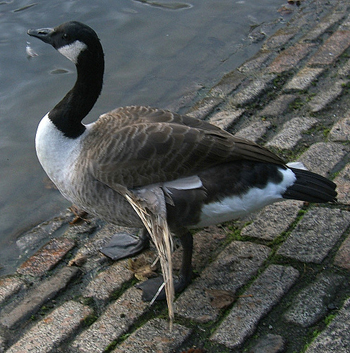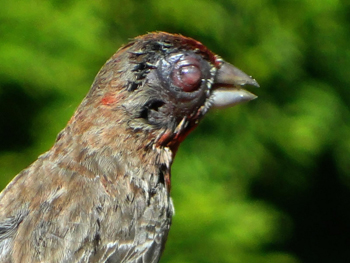Before offering wild animals a handout of food please consider the following:
Feeding Wildlife May Quickly Cause Problems
Feeding a single wild animal can quickly lead to having many at your doorstep. Wild animals constantly search for food and many will find the easy food source you provide. Continually feeding many wild animals in the same place can harm the habitat, people, and the animals themselves.
Feeding Wildlife May Cause the Spread of Disease
Most wildlife diseases are transferred from animal to animal. Because of their close contact, animals crowding at feeding sites can readily exchange diseases. More animals die from disease and disease-related ailments than from starvation.
It’s also important to remember that wildlife can carry many diseases that readily spread to people, pets, and livestock. These diseases include rabies, Lyme disease, salmonellosis, Rocky Mountain spotted fever, tularemia, distempers, and encephalitis. In addition, most wildlife species carry parasites that are also easily transferred. For example, raccoon round worms can be fatal to humans and scabies mites cause mange in pets.
Therefore, artificial foods can concentrate wildlife which can increase disease spread among people, pets, and wildlife.
Wild Animals Can be Dangerous!
Animals that are fed by humans often lose their natural fear of people. Nearly any wild animal, no matter how timid, is capable of inflicting injury to humans, pets, and livestock.
Feeding Leads to Crowding and Crowding Causes Stress
In crowded situations, physical aggression among individual animals is common. At feeding sites, larger more aggressive individuals often exclude younger and weaker individuals. Aggressive behavior can lead to injuries and even death, particularly for vulnerable individuals.
Supplemental Food Sources Do Not Contribute to a Wildlife Population’s Well-being
 Wild animals need varied, natural foods as a part of their normal diet. Their digestive systems are adapted to extract energy from a variety of foods available throughout the seasons.
Wild animals need varied, natural foods as a part of their normal diet. Their digestive systems are adapted to extract energy from a variety of foods available throughout the seasons.
Though wildlife may accept handouts from people, they will likely not get the balanced diet they need for good health. For example, deer have sensitive digestive systems that cannot readily adapt to supplemental food sources. In fact, winter starved deer have actually died with full stomachs because their digestive system was unable to process the supplemental food. In the case of waterfowl like ducks and geese, high calorie supplemental diets can negatively impact wing development, causing a deformation known as ‘angel wing’.
An Overabundance of Individuals Can Result in Habitat Degradation
Any given habitat can only support a limited amount of wildlife. An overabundance of wild animals drawn to a feeding area can damage the local habitat for not only the animals being fed but others species as well. Habitat degradation significantly affects all wildlife species. Also, feeding deer may cause problems for your neighbors or adjacent landowners.
 Feeding Wild Birds
Feeding Wild Birds
Even keeping a bird feeder has its difficulties. Although songbirds do not lose their instinctual fear of humans and the seeds provided are nutritionally beneficial, they are susceptible to diseases caused by dirty bird feeders. For example, avian conjunctivitis is a common disease spread by unclean feeders. Birds which contract the disease get red, swollen eyes and often die due to going blind. Feeders should be kept clean and can be disinfected with a mild bleach solution every 2 weeks. The ground underneath the feeder should be raked to remove moldy grain and bird droppings because both can harbor disease. Check out the Wild Acres page on Feeding Wild Birds for more information.
Wild Animals Need Habitat, Not Handouts
Wild animals benefit from healthy habitat. To help wildlife species, practice sound habitat management in your own backyard and support programs dedicated to providing and protecting healthy wildlife habitat. The Maryland Wildlife and Heritage Service can provide information and guidance to people interested in helping wildlife around their homes and in their communities. To learn how to create better backyards that help wildlife rather than hurt wildlife, please check out our Wild Acres page.
To report nuisance, injured or sick wildlife (Monday - Friday, 8:00 am - 4:30 pm)
Call Toll-free in Maryland: 1-877-463-6497
Acknowledgements:
- Finch with conjunctivitis by Terry Gray, Flickr
- Goose with angel wing by Rusty Dragonfly, Flickr CC BY-NC 2.0
For more information, please contact:
Maryland Department of Natural Resources
Wildlife and Heritage Service
Tawes State Office Building, E-1
Annapolis MD 21401
410-260-8540
Toll-free in Maryland: 1-877-620-8DNR, Ext. 8540